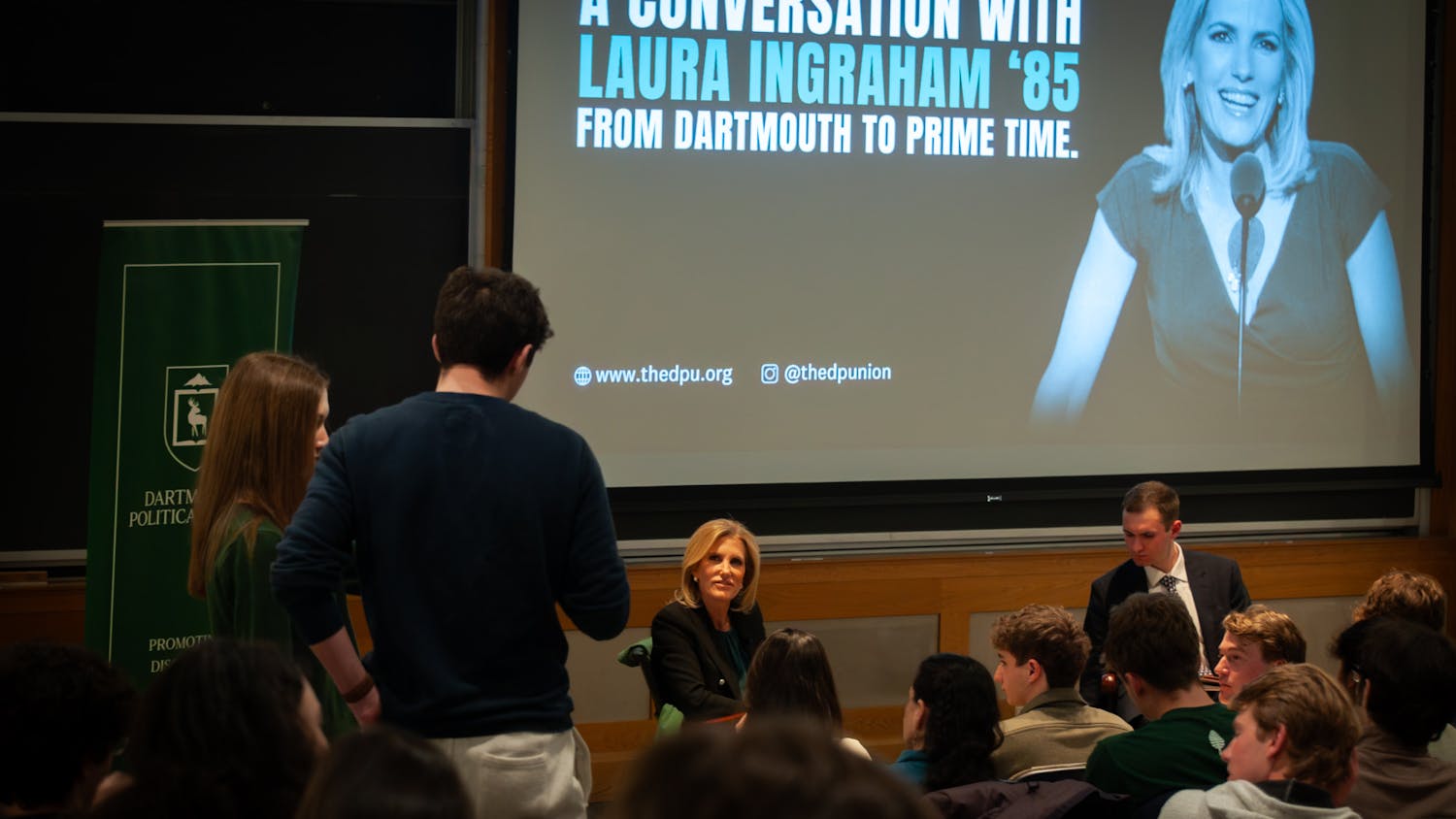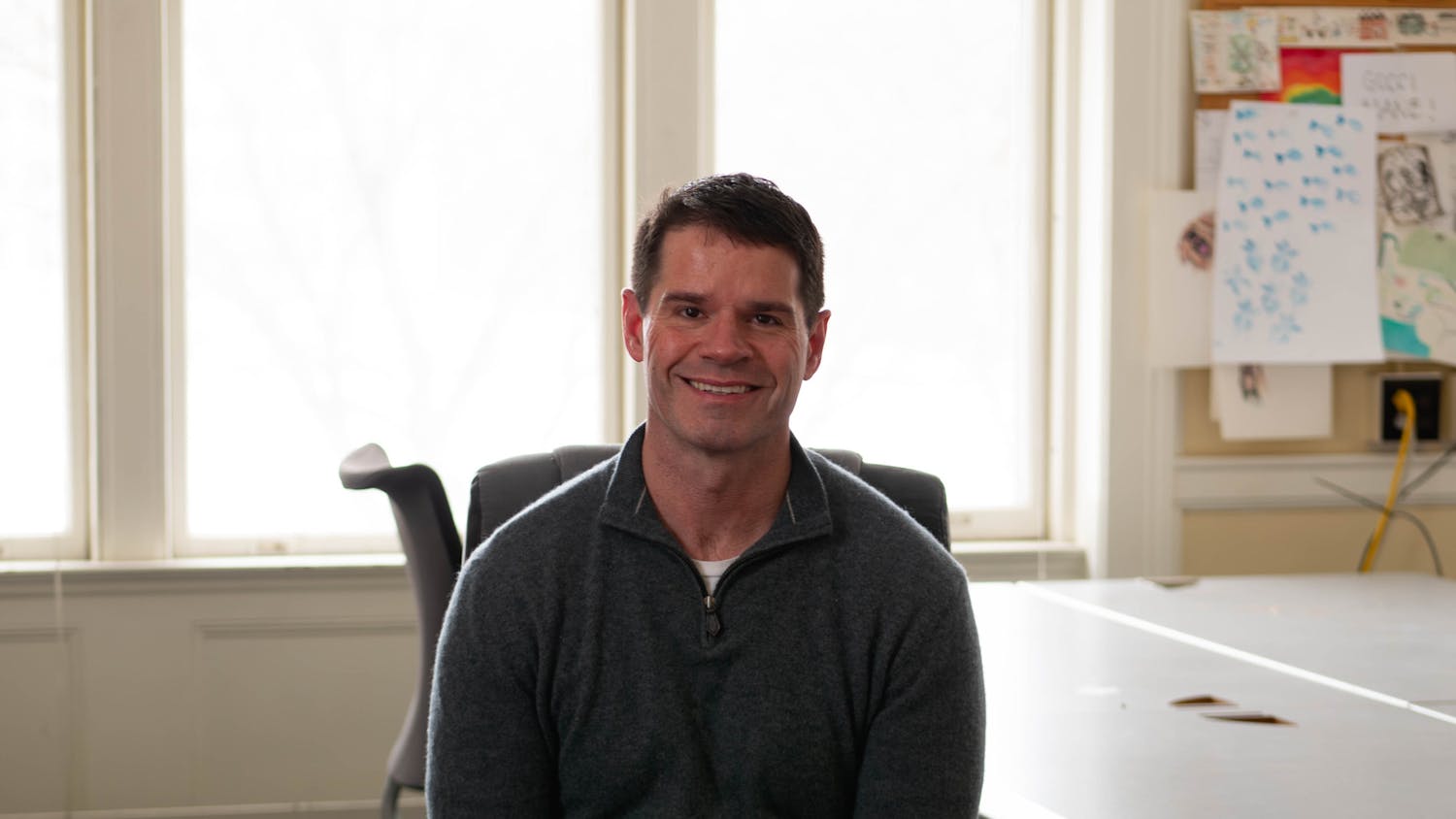The Hippocratic Oath is commonly misinterpreted due to mistranslations of the original Greek text, Ronald Green, a professor of religion and director of the Ethics Institute, said at a panel discussion at Dartmouth Medical School Monday evening.
New doctors traditionally recite the Hippocratic Oath, commonly believed to have been written by Hippocrates in 400 BC, to pledge dedication to the patients' well-being and the sanctity of the physician-patient relationship, Green said.
"Every translation is a betrayal," Green said. "There is no text free of interpretation."
Green spoke as part of an interactive panel that explored issues in medical ethics as reflected by the Hippocratic Oath.
The panel also included senior lecturer of philosophy Larry Crocker and DMS professor Jim Bernat.
The version of the oath currently used by DMS inspired professor Lee Witters to form the panel, the first to explore this topic at Dartmouth, he said.
"It has bothered me for a number of years, and I thought it would be a great teaching moment to explore the Oath's origins, its translations and revisions, its meanings both in antiquity and now and its very relevance to modern medicine," Witters said in an e-mail to The Dartmouth.
Understanding the oath, especially for students of medicine, is critical, Green explained.
"It ensures that we are constrained beyond legal requirements in making a conscientious commitment to what we regard as a sacred profession," Green said in an interview.
Crocker, a self-proclaimed atheist, addressed alternatives to DMS' version of the oath, which requires the speaker to swear by what he or she holds "most sacred."
Theists and atheists may be more comfortable with other forms of the oath, he said, adding that the Hippocratic Oath supports the idea that deities distribute rewards and punishments.
"Get rid of the magic in the oath so that it applies to everyone," he said. "An oath, like a creed, should be recited only in good conscience."
There are many "non-Hippocratic" physician oaths, according to a handout given at the panel. Students at Harvard Medical School, for example, can write their own oaths.
The contention surrounding the subject was apparent during the question and answer sessions that followed each speech, Michelanne Shields '08, who attended the event, noted.
"I thought there were going to be some cat fights at one point," she said. "Clearly this is a controversial topic, and people tonight voiced their very different views."
Witters coordinated and planned the event to bring together undergraduates, medical students and faculty with interests in medicine, ethics, classics, history and language.
"I personally strongly believe that medical (or pre-medical) education needs to embrace not just the natural sciences, but the humanities and social sciences, and this particular topic was one focal point at which to do that," he said in an e-mail.
The event was sponsored by the Nathan Smith Society and the Linda & Paul Gridley Faculty Fellowship, recently awarded to Witters.



